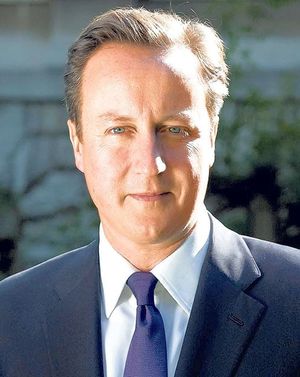The battle for preserving marriage as a life-long union between one man and one woman has become global, with legal and political challenges across the world seeking to undermine God’s sacred institution.
Christians have long argued that redefining marriage outside its biblical parameters (Genesis 2:21-25) can only open a floodgate of sorrow and confusion, with many discordant voices clamouring for equality for a variety of sexual unions.
Brazil
This ‘slippery slope’ argument has not been popular. But the news broke in August that a notary in the Brazilian state of Sao Paulo had allowed a civil union between three people.
According to Brazil’s Globo TV, a union between two women and a man had been formalised three months prior to its public declaration. Public Notary Claudia do Nascimento Domingues said the man and two women should be entitled to family rights and there is nothing in law to prevent such an arrangement.
The BBC reported that the three individuals have lived together in Rio de Janeiro for three years, sharing bills and other expenses. Nathaniel Santos Batista Junior, a jurist who helped draft the document, said the idea was to protect their rights in case of separation or the death of a partner.
Ms Domingues told the BBC that the move to allow the threesome reflected the fact that the idea of a ‘family’ had changed. She claimed: ‘For better or worse, it doesn’t matter, but what we considered a family before isn’t necessarily what we would consider today’.
North America
Brazil is not the only country to have same-sex marriage turn around and bite them hard. In July 2005, Canada became the fourth country in the world to legalise same-sex marriage nationwide.
Canada was hailed widely as a progressive nation, and those concerned that a ‘can of worms’ had been opened up were ignored. But, on 13 January 2012, the Canadian parliament admitted that more than 5000 foreign gay couples tying the knot there may not have a legal marriage after all, thanks to a loophole in its marriage laws.
A test case was brought by a gay couple who wished to divorce. They had married in Canada, but their home countries — the USA and UK — did not recognise same-sex marriage.
The Canadian government contended that non-Canadian gays and lesbians were only considered married under its own laws if gay marriage is recognised in the participants’ home country or state.
The legal situation looks to become messy in the USA too. A few weeks after US President Obama vocalised his support for same-sex marriage, North Carolina passed an amendment banning it.
UK
Here in the UK, the return of parliament coupled with PM David Cameron’s cabinet reshuffle put Maria Miller in as the new Culture Secretary. She had previously voted against her party leader’s pledge to allow gay marriage, but now her brief also includes Minister for Women and Equalities.
There has been a sharp reaction to her appointment across the increasingly pro-equal marriage media and other social media. Will she now be forced to give in to the Prime Minister’s plans?
Mr Cameron’s plan to redefine marriage has reportedly caused a huge plunge in Conservative Party membership. Since he took over in 2005, it has dropped by 60 per cent — from 300,000 to below 130,000 members.
And, before the summer holidays, according to a Daily Mail article, Mr Cameron was given a strong warning by 20 senior members that failure to change track on same-sex marriage would result in Conservative membership plunging below the 100,000 mark.
Scotland
Meanwhile, north of the border, the Scottish National Party (SNP) has come under increasing pressure from groups such as the Scottish Christian Party (SCP), which, in July, criticised the SNP government for its plans to introduce a bill later this year aimed at redefining marriage to include homosexual partnerships.
The SCP pointed to an ‘unprecedented number of responses to the consultation exercise’ undertaken by the Scottish government before it put the bill forward. Some 64 per cent of the 77,508 respondents were against the change.
The SCP’s statement read: ‘The SNP has stated that there will be safeguards for free speech and religious belief, but a leading QC opinion suggests that this is not possible under current Equalities legislation’.
The head of the Catholic Church, Cardinal Keith O’Brien, added to the outcry against the Scottish government. He brought up the ‘slippery slope’ argument, pointing to the Brazilian case and saying, ‘We have warned that such redefinition must surely, logically allow for multiple partners to enter into “marriage”.’
Folly
Talk of a ‘slippery slope’ is more than mere rhetoric. The current political wrangling in Canada and Brazil demonstrates that same-sex marriage will bring big trouble for politicians and legal chaos for society as a whole.
It will create problems for morality, the family and the concept of marriage as a contract. Moreover, it will threaten religious belief, while there will be no reliable safeguards for freedom of speech.
Despite soothing noises from Mr Cameron that churches must be allowed free rein, if the SCP’s QC is correct, there will be no protection for Bible-believing churches under any Equalities legislation.
Same-sex marriage is political and legal folly that will bring a bitter harvest of confusion in its wake. It is, at root, rebellion against the Most High God and his holy law.
Well might Christians echo the cry of the prophet Amos, who faced the moral disintegration in his own society: ‘But let justice run down like water, and righteousness like a mighty stream (5:24).
This is a prayer that God listens to, as those who continue to ignore his Word will one day discover to their ruin.










